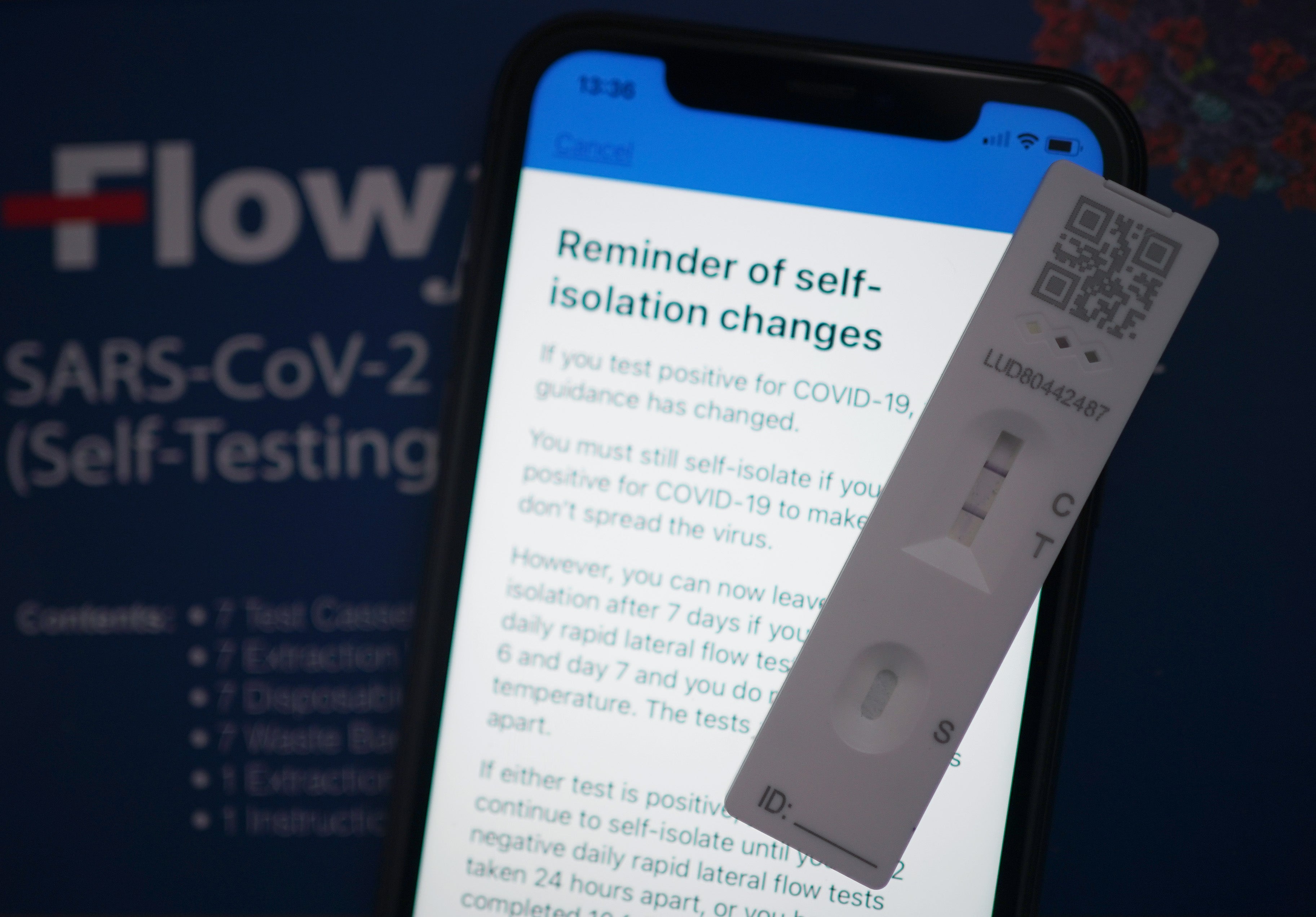Younger adults ‘more likely to use lateral flows ahead of festive meet-ups’
Some 57% of adults told the Office for National Statistics they had taken a lateral flow test in the past seven days.

Your support helps us to tell the story
From reproductive rights to climate change to Big Tech, The Independent is on the ground when the story is developing. Whether it's investigating the financials of Elon Musk's pro-Trump PAC or producing our latest documentary, 'The A Word', which shines a light on the American women fighting for reproductive rights, we know how important it is to parse out the facts from the messaging.
At such a critical moment in US history, we need reporters on the ground. Your donation allows us to keep sending journalists to speak to both sides of the story.
The Independent is trusted by Americans across the entire political spectrum. And unlike many other quality news outlets, we choose not to lock Americans out of our reporting and analysis with paywalls. We believe quality journalism should be available to everyone, paid for by those who can afford it.
Your support makes all the difference.Young adults were more likely to test themselves for coronavirus ahead of Christmas meet-ups, while older people were more cautious about social interaction, figures suggest.
Some 57% of adults told the Office for National Statistics (ONS) they had taken a lateral flow test in the past seven days – up from 42% in the first half of December.
Almost two thirds (65%) of those aged 16 to 49 said they had tested themselves in the last week, compared to 54% of adults aged 50 to 69 and 38% of those aged 70 and over.
Older adults were more likely to say they had socially distanced or avoided physical contact with others outside their homes.
The ONS analysed responses from 4,700 people in Britain between December 15 and January 3 as part of its Opinions and Lifestyle survey.
It asked about people’s behaviour after new measures were brought in as part of the Government’s Plan B in response to rapidly rising Omicron cases.
The findings show that more adults said they had always or often socially distanced from others and avoided physical contact outside their home, compared to the first half of December.
Some 43% of adults said they had socially distanced from others outside their home in the past week – ranging from 25% of 16 to 29-year-olds to 58% of those aged 70 and over.
Six in ten (63%) of adults said they avoided physical contact with others outside their home, with older people more likely to report this than younger adults.
Overall, 69% of adults had socialised with others indoors, while 47% had socialised with others outdoors in the past week – similar to the previous period.
Some 64% of 16 to 29-year-olds said they had socialised outdoors, compared to 41% of those aged 70 and older.
There was no significant difference between age groups for indoor meet-ups.
Hugh Stickland from the Office for National Statistics said: “Today’s data offers the first insights as to how people have changed their behaviour since the implementation of Plan B and new measures across Devolved Nations.
“Findings over the Christmas period suggest that older people were more cautious about social interactions, whilst younger people were more likely to test themselves ahead of having social contact with others.”